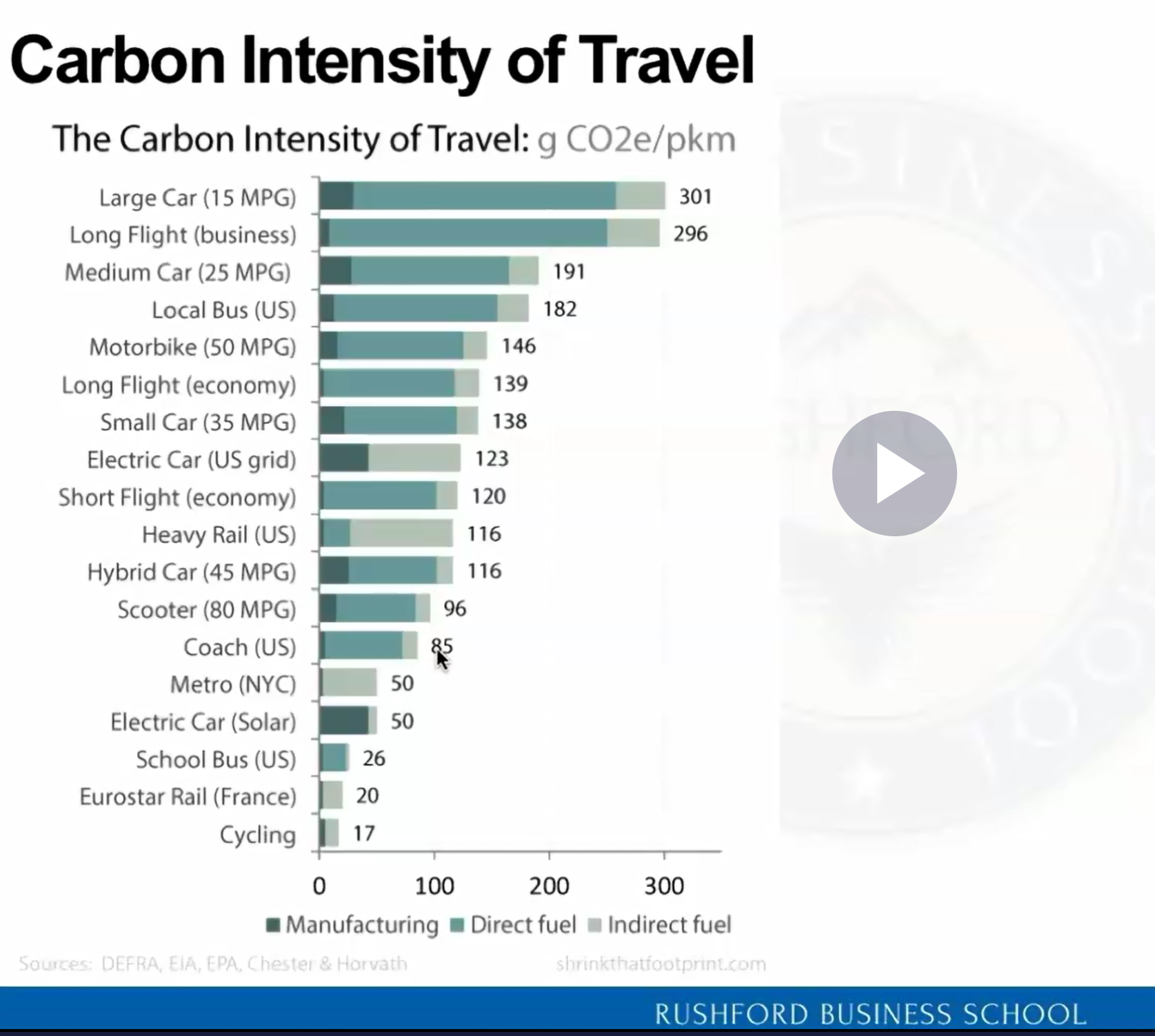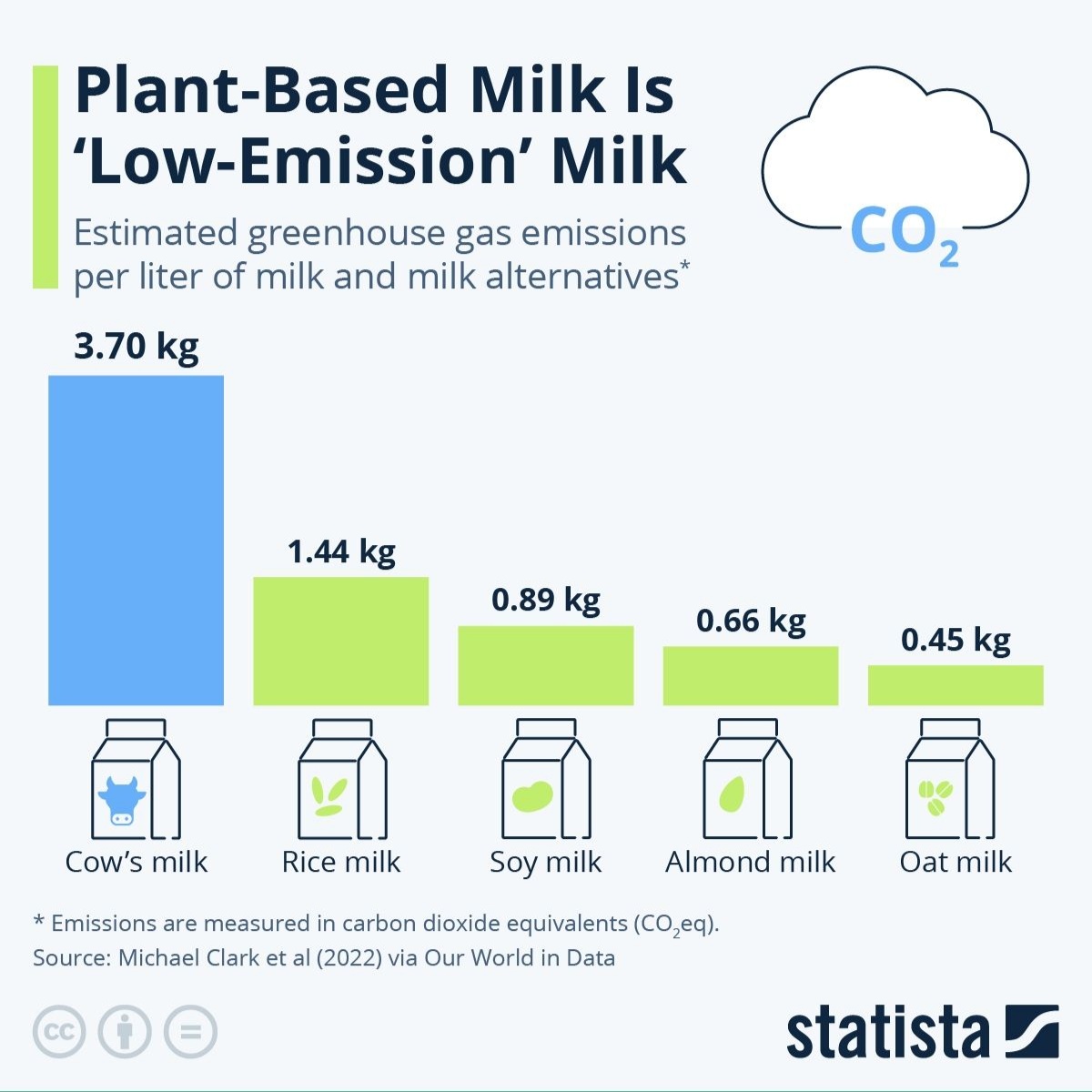Back
Saket Sambhav
•
ADJUVA LEGAL® • 8m
Do EVs Really Reduce Carbon? A Surprising Look at Manufacturing vs. Lifetime Emissions. 🚗⚡ Attended an interesting lecture during my DBA studies, and a fascinating point came up that I had to share. We often hear that Electric Vehicles (EVs) have a higher carbon footprint during manufacturing than traditional petrol/diesel cars. So how are they actually better for the environment? I found this chart that explains it perfectly. It breaks down the Carbon Intensity of Travel (g CO2e/pkm - grams of CO2 equivalent per passenger kilometer). Let's look at the data for a typical car vs. an EV: Small Car (Petrol - 35 MPG): Manufacturing Footprint: Very small Direct Fuel Footprint: HUGE Total Carbon Intensity: 138 g CO2e/pkm Electric Car (US grid): Manufacturing Footprint: Significantly larger than the petrol car (this is due to battery production). Direct Fuel Footprint: ZERO (no tailpipe emissions). Indirect Fuel Footprint: Moderate (this represents the emissions from the electricity grid used to charge the car). Total Carbon Intensity: 123 g CO2e/pkm The Key Takeaway: An EV starts with a higher carbon "debt" from its manufacturing. But over its lifetime, because it has zero tailpipe emissions, its overall carbon footprint per kilometer is still lower than a comparable petrol car. The Game-Changer: Look at the "Electric Car (Solar)" option in the chart. Its total carbon intensity plummets to just 50 g CO2e/pkm! This shows that an EV is only as clean as the electricity used to power it. When charged with renewable energy like solar, the environmental benefit becomes massive. So yes, while the manufacturing impact is real, the lifetime operational benefit of EVs, especially when paired with clean energy, makes them a crucial tool in the fight against air pollution. What are your thoughts on the path to making EVs even greener in India? 👇

Replies (11)
More like this
Recommendations from Medial
Prajal Regmi
Towards sustainabili... • 10m
Building a Sustainable Business 🤔 Why It Matters? As the world grapples with climate change, environmental degradation, and social inequality, sustainability has become a critical aspect of business strategy. Companies that prioritize sustainabili
See MoreSuprodip Bhattacharya
Entrepreneur || Star... • 1y
I understand EV is most booming sector,peoples are trying to make ev companies but why peoples aren’t focusing on big problems here like i) Evs aren’t still sustainable we’re saying it’s sustainable because we aren’t using petrol/diesel but we are us
See MoreDownload the medial app to read full posts, comements and news.























/entrackr/media/post_attachments/wp-content/uploads/2021/08/Accel-1.jpg)



















